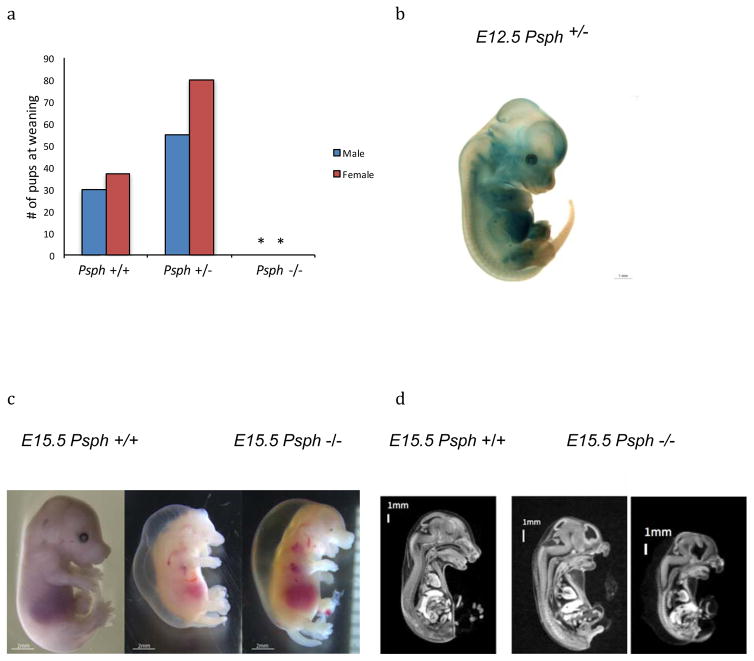Figure 3. Psph.
Phosphoserine phosphatase deficiency (OMIM: 614023) is an autosomal recessive disorder characterised by prenatal and postnatal growth retardation, psychomotor retardation and facial dysmorphologies with the severity of the symptoms requiring medical support for survival. Complete preweaning lethality was observed in Psphtm1.1(KOMP)Vlcg homozygous null mice. Pup number, genotypes and sex ratios of heterozygous intercrosses were set to generate cohorts for phenotyping. No homozygous pups were observed whereas respectively 66% (54/82) and 34% (28/82) were produced (A; # of pups, asterisks indicate no surviving homozygotes). LacZ reporter expression regulated by the Psph promoter in asymptomatic heterozygous E12.5 embryos shows extensive gene expression (B; bar 1mm). Gross images of E15.5 homozygous mutant embryos confirmed growth retardation, haemorrhage, and facial dysmorphologies (C; bar 5mm). Imaging of E15.5 embryos by microCT showed significant growth retardation, as well as facial dysmorphologies consistent with the human Mendelian disorder (D).

